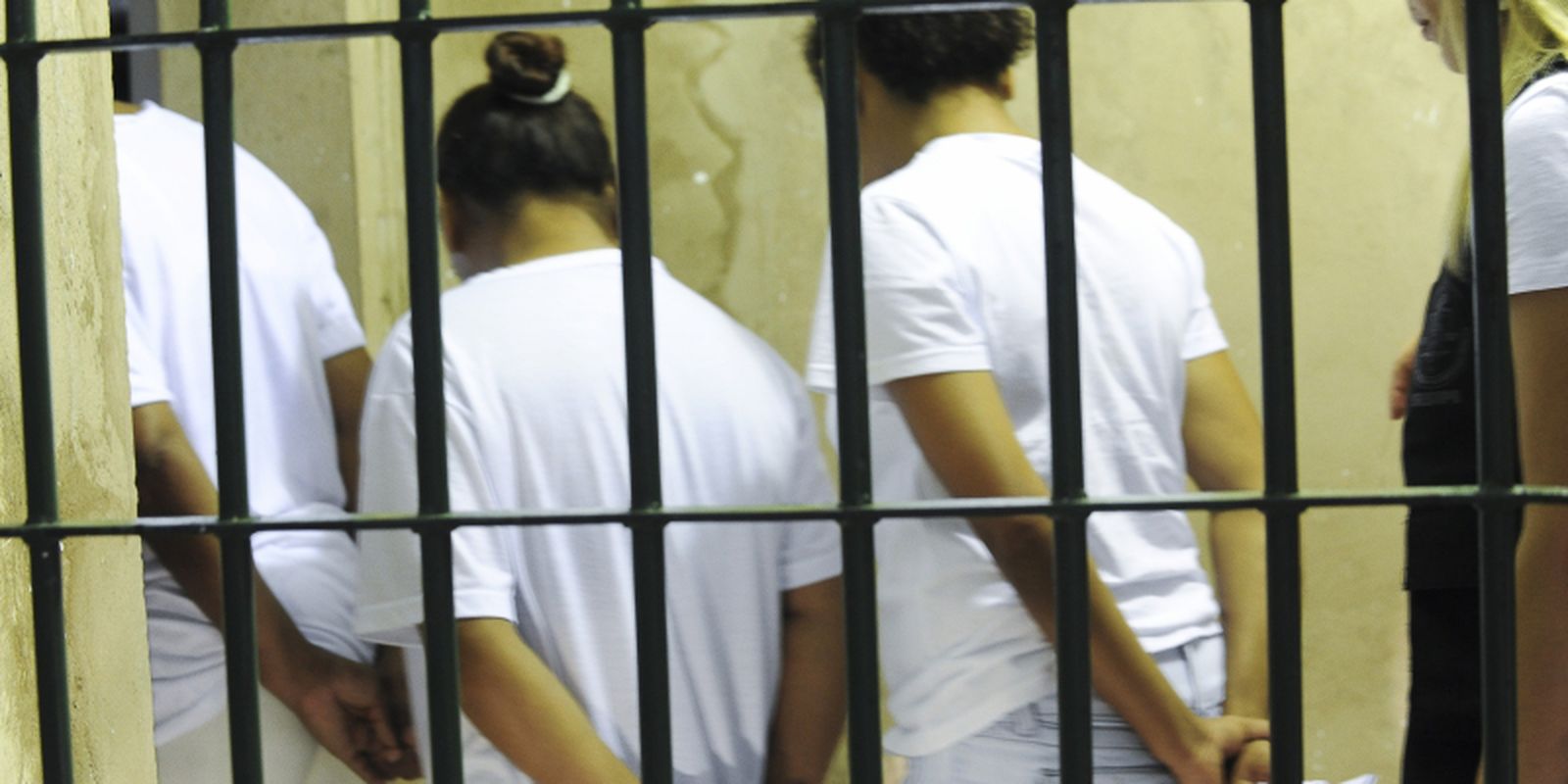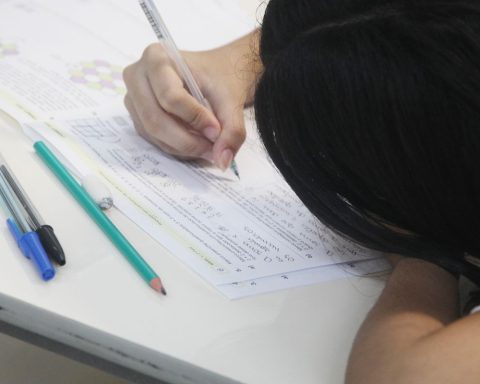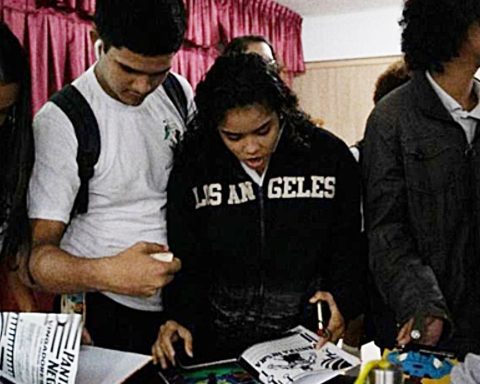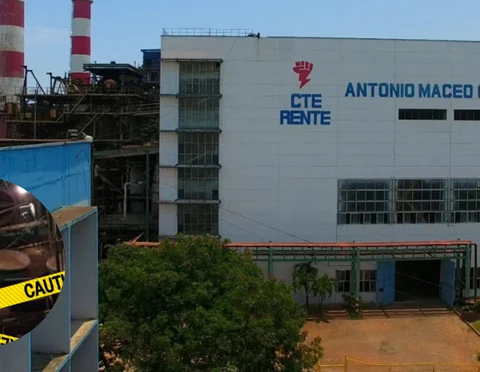Women arrested accused of drug trafficking are mostly black and with few opportunities to study, says researcher Dina Alves who analyzes the conditions of women incarcerated.
“Drug policy is an instrument for the extermination of black youth. Because they are young and they are black. These are women who haven’t even had the opportunity to access the university”, she emphasizes.
For the researcher, the way in which the fight against illicit drug markets is established is a way of pursuing populations without opportunities. “If black women who are incarcerated make up the same profile as black women outside the prison system who are unemployed, who are mothers with more than one, two or three children, who often perform a function of underemployment – as a maid, a nanny , cleaning women or street vendors – they are already in a place of vulnerability”, he points out.
Persecution of black and peripheral
These women are also affected, according to Dina, by the way in which actions that have the pretext of fighting drug trafficking are directed at certain communities.
“Women who are accused of trafficking with very severe penalties on their bodies, do not exercise any management role in drug micro-trafficking. Many were in retail or had a place of approximation to what is called trafficking. Because they already live in communities that are criminalized as a place where trafficking is produced,” she adds.
As a milestone in this process, the researcher highlights the enactment of the 2006 drug law, which established tougher penalties for people accused of trafficking. This change, in Dina’s view, is part of a recrudescence at a global level that took place from the 1990s onwards.
“Since the law was enacted, we have seen an alarming increase in women imprisoned under the justification that they are dangerous drug traffickers”, he says. “From 2000 to 2016, if we were to make this cut, there was a growth of 525%-incarceration of women.”, She adds.
The fact that these arrests affect, in the vast majority, black people, is, in the researcher’s assessment, a reflection of the racism that descends from the Brazilian slave regime, which was legally in force until 1888. “If there is a historical persecution against blacks and indigenous people in Brazil, we have to see and understand the criminal justice system as one of the most expressive arms of the State of extermination of this population.”
No condemnation and no study
Data from the Information System of the National Penitentiary Department of the Ministry of Justice (Sisdepen) indicate that, in June 2022, there were 45,500 women in Brazilian prisons. Of these, at least 29%, around 13,200, had no conviction.
Information related to racial profile and education only covers 33,300 of those incarcerated. In this sample, the number of illiterates, totaling 675, exceeds those with higher education (661). There are still 1,500 who are literate, but did not attend regular education and 13,800 who did not complete elementary school.
Dina warns that it is necessary to be careful when carrying out analyzes based on the information provided by the Public Power, which has been, according to her, one of the main violators of the rights of these populations. “We cannot trust the data that the State produces about its own violations”, she says.
For this reason, in her work, she has chosen to listen directly to those affected. “There are other data that should also be considered, which are the narratives that are produced within the prison system, the women’s narrative”, she emphasizes. These listenings were the basis for the show Dança Rés, staged by Corporea Companhia de Corpos in 2017.
pardon and release
The sociologist and co-founder of the Black Initiative for a New Drug Policy, Nathália Oliveira, argues that an inflection should be made in the way the Brazilian State deals with the drug issue.
“We can have a good reprieve of women this year. Many of these women are arrested for low amounts, they are victims of drug trafficking, not necessarily just agents of violence, as the media puts it”, he says when defending that President Luiz Inácio Lula da Silva promote an amnesty for women arrested on accusations of trafficking from the presidential pardon. It is customary at Christmas time for the president to grant pardons to groups of convicted people.
This gesture could, in Nathália’s opinion, be an indication of change in the current drug policy. “We need to develop a peaceful relationship with the industry that involves the production, circulation and consumption of substances in general. A rational relationship from the point of view of our society. This is key. It makes no sense for us to invest our public budget in an agenda of death instead of investing in an agenda that guarantees rights”, she points out.
The National Secretariat for Drug Policies, Martha Machado, says that the Ministry of Justice should not act to change the current legislation on the subject. “These decisions must be resolved either by the STF [Supremo Tribunal Federal] or by the legislature”, he says. In March, the ministry promoted a seminar on the impacts of drug policy on the female population and launched a public notice, with registration until April 21, to support groups that work with these people.
According to Marta, the secretariat has taken actions to reduce the number of women arrested accused of trafficking. “We already have a law that does not penalize the user. We understand that there is much to be done to avoid biases in the application of this law. Working alongside custody hearings. There is a successful experience in the CNJ [Conselho Nacional de Justiça] to encourage custody hearings, to improve quality, to work at the gateway to the criminal justice system, assisting the judge,” he says.
Custody hearings are the moment when people arrested in flagrante delicto are heard by a judge to ascertain the legality or need for that person to be kept in custody. On that occasion, the magistrate may choose to release the accused or determine precautionary measures, such as the use of an electronic anklet, in place of imprisonment.
“So, we have a model of having a psychosocial network of professionals – psychologists, social workers, people linked to the health system who, for example, assist this person before being referred to the judge and manage to make a report that helps the judge. The report can show more clearly whether the person is a user or a drug dealer. In this separation, we think this is very important”, adds the secretariat.
Dina Alves defends the adoption of a broad agenda of extrication and acknowledgment of the mistakes made by the policy instituted so far. “One of the first steps is to recognize this slavery memory, which is posthumous in the memory and existence of institutions. Recognize political background, with a racial perspective for society. But, mainly, I think that prison needs to be opened in society. We need to talk about the demilitarization of the police as an urgent agenda. And also discharge policies. May extrication policies be effective.”
















